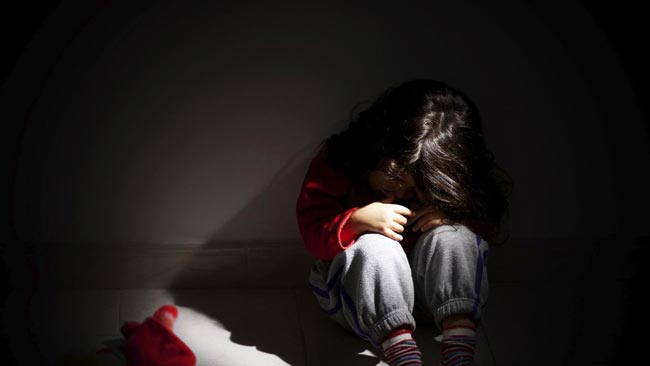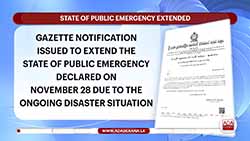Dramatic rise in child cruelty cases during curfew in Sri Lanka – UNICEF, NCPA
April 9, 2020 10:44 pm
The United Nations Children’s Fund (UNICEF) and the National Child Protection Agency (NCPA) are gravely concerned by the dramatic rise in the proportion of child cruelty cases reported to the 1929 child helpline since the start of Sri Lanka’s COVID-19 curfew.
In the three-week period between 16 March and 7 April 2020, the proportion of child cruelty cases as a total all reported child protection complaints, rose from 10 percent to 40 percent. A total of 292 child protection complaints have been received via NCPA hotline during the said period and there were 121 cruelties to children cases.
“The quick action of the Government of Sri Lanka has been successful in limiting the spread of COVID-19 in the country and protecting those at high risk. This is to their great credit” said Tim Sutton, Representative, UNICEF Sri Lanka, “With schools closed, children at home all day and many parents unable to work; stress, isolation and economic hardship are increasing the risk of domestic violence, child cruelty and abuse.
Our message is simple; Firstly, we urge parents and families to spend quality time with children and practice ‘positive discipline’ not physical harm in the face of stress. Secondly, we call on everybody to ensure that children do not become the victims of this needed health action. If they are concerned about a child in danger, call the NCPA 1929 helpline immediately.”
Professor Vidanapathirana, Chairperson of the NCPA commented “While we know that this is an extremely challenging and stressful time for all of Sri Lanka we must absolutely ensure that children, who are often the most vulnerable in our society, do not suffer cruelty, violence, and abuse.
Despite the curfew, the NCPA has ensured that the 1929 child helpline is fully staffed and open 24 hours a day. I ask all Sri Lankans this; if you are worried about the safety or wellbeing of any child, report it immediately. We must not be in a situation where children are protected from COVID-19, for them just to be damaged by violence and abuse.”
The dramatic rise experienced is consistent with global evidence from previous infectious disease outbreaks that show that child protection incidents such as violence, abuse, exploitation, and neglect are aggravated during these times.
Speaking earlier this month, UN Secretary-General António Guterres urgently highlighted the need for measures to address a “horrifying global surge in domestic violence” which is being experienced by women and girls and linked to lockdowns imposed by governments responding to the COVID-19 pandemic.
A combination of economic and social stresses brought on by the pandemic, as well as restrictions on movement, have dramatically increased the numbers of women and children, especially girls, who are facing abuse, in almost all countries.
UNICEF is asking parents to adopt ‘positive parenting’, a way of parenting which focuses on encouraging positive aspects of child behavior rather than punishing negative behavior and which holds children to realistic standards by using clear expectations and empowering children to become capable and resilient.
To support parents and caregivers to practice healthy caregiving and to get through the current challenging situation, UNICEF has published a set of parenting tips, that can be accessed on BetterParenting.LK in Sinhala, Tamil, and English including:
Have one-on-one time: The school shutdown is also a chance to form better relationships with our children. One-on-One time is free and fun. It makes children feel loved and secure and shows them that they are important.
Create a structure: COVID-19 has taken away our daily work, home, and school routines. This is hard for children and for you. Making new routines and sticking to them as much possible can help.
Self-care first to manage stress: This can indeed be a very stressful time. Caregivers must take care of themselves so they can support their children. At stressful times count from 10-1 and 1-10.
Talk about COVID-19: Be willing to talk. Children will already have heard something. Silence and secrets do not protect children. Honesty and openness do. Think about how much they will understand.
Keep positive: It is hard to feel positive when children are seeking more attention than usual from the caregivers. Parents and caregivers, often end up saying “Stop doing that!” But children are much more likely to do what is asked if they are given positive instructions and lots of praise for what they do right.
Full tips can be found here.
Concerned citizens are asked to report any suspicions of violence, abuse, neglect or exploitation against children to the NCPA 1929 helpline, which is a free and confidential service, available 24 hours a day, 7 days a week.












